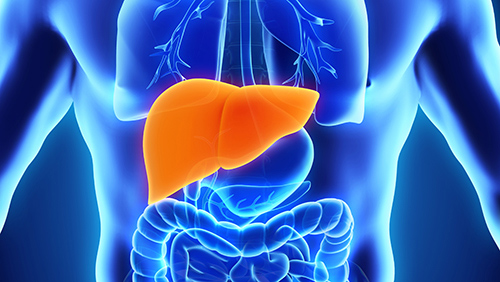Liver Transplant

We are a leader in liver transplantation. Interested in an evaluation? Learn more about:
Liver Transplant
Nonalcoholic fatty liver disease, or NAFLD, is a common disease among U.S. adults – especially those with diabetes. We offer a program that streamlines NAFLD diagnosis and treatment.
If you have diabetes, it's important to talk to your doctor about screening for NAFLD because of your higher chance of developing fatty liver disease.
NAFLD means you have fat buildup in your liver that is not from excessive alcohol use. It often happens when people are overweight or obese, have diabetes and high cholesterol. NAFLD is one of the most common types of liver disease in the United States.
Some people develop a more severe form of NAFLD called NASH, or nonalcoholic steatohepatitis. NASH is when the liver is inflamed (hepatitis) and liver cells are damaged, which can result in liver scarring (fibrosis). NASH may lead to cirrhosis or liver cancer.
Diabetes or prediabetes is only one of the risk factors of nonalcoholic fatty liver disease. Others include:
Many people with NAFLD have no symptoms. Those that do may be tired and have discomfort on the upper right side of the abdomen.
If you have NAFLD risk factors or symptoms, we'll review your medical and family history. You'll have a physical exam and diagnostic tests to determine your risk level.
Tests to diagnose NAFLD include:
If more testing is needed, UMMC offers a noninvasive liver scan to help determine your risk for developing more severe liver disease. The scan will show fatty changes and any scarring on your liver.
While there are currently no approved medications to treat nonalcoholic fatty liver disease, it can be reversed in some cases. Some people feel better with lifestyle and health changes, which we can help with.
Losing weight can help reduce liver inflammation and fat in your liver. Gradually losing 10% of your body weight over more than a year can produce the best results. Losing weight too fast may make NAFLD worse.
Our registered dietitians can help you make diet and lifestyle changes to lose weight safely and permanently. We use a variety of evidence-based approaches to weight management, including customized nutrition plans and medically supervised diets, exercise coaching and more. Patients have access to recent technologies in weight loss aids, like a Body Composition Analyzer to measure fat and water mass.
Learn more about how our experts can help you at the Weight Management Program at the UMMC Midtown Campus in Baltimore.
We teach patients how to manage blood sugar, deal with stress and adopt a healthy lifestyle with our Diabetes Self-Management Program. You'll be taught by a certified diabetes educator in a group session at our Midtown Campus.
Our physical therapists can create an exercise program that, along with your diet, can help you maintain or gain strength and flexibility as you lose weight. Clinical trials are available for eligible individuals.
Our diabetes specialists are conveniently located in midtown Baltimore near the Mount Vernon neighborhood:
UM Center for Diabetes and Endocrinology
Midtown Outpatient Tower
800 Linden Avenue, 8th floor
Baltimore, MD 21201
443-682-6800
Get directions and parking info
You can visit our liver specialists in Baltimore:
Digestive Health Center Hepatology
22 South Greene Street
N8NE28
Baltimore, MD 21201
410-328-1358
Get directions and parking info
UM Digestive Health Center
Midtown Outpatient Tower
800 Linden Avenue, 9th floor
Baltimore, MD 21201
410-225-8301
Get directions and parking info